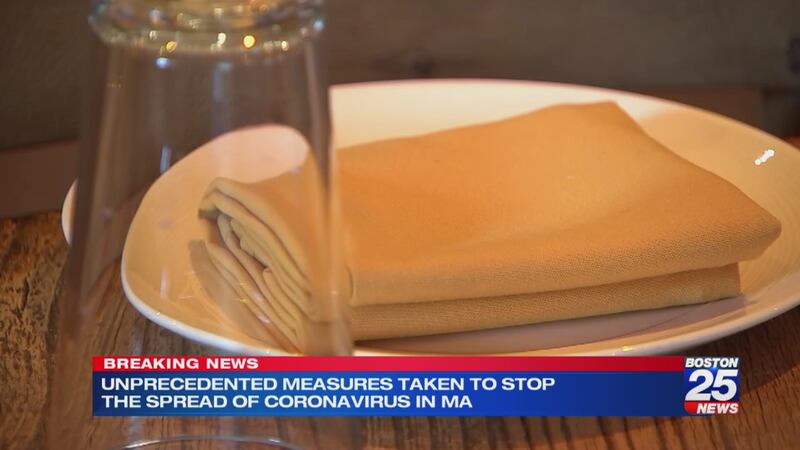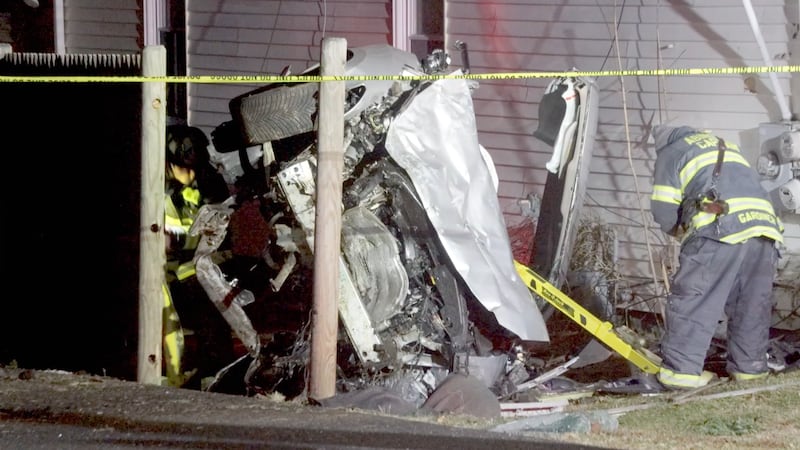The Baker-Polito administration has announced emergency actions to help combat COVID-19 in the state of Mass.
Baker announced a three-week suspension of all school operations for all private and public elementary and secondary schools. This will begin on Tuesday, March 17 and end on Monday, April 6.
The Department of Elementary and Secondary Education (DESE) will work with schools and districts to develop strategies and resources to provide services throughout this closure period. DESE has already received a partial waiver from the U.S. Department of Agriculture regarding food service in districts with higher concentrations of low-income students.
Our administration is taking these rapid steps to protect the health and safety of our residents to mitigate the spread of COVID-19. We know that a lot of the measures we are putting into place, including mandatory school closures and prohibiting gatherings of 25 people or more, will cause disruption in people’s day to day lives. With the steps we are taking today, we can ensure residents can still access key state services while taking necessary precautions to limit the spread of COVID-19.
— Governor Baker
BREAKING: @MassGovernor suspends all public schools for the next 3 weeks to prevent the spread of #COVID19 in MA.
— Litsa Pappas (@LitsaPappas) March 15, 2020
Governor Baker also bans any public gatherings of more than 25 people (ordering restaurants to offer take-out food only)
Watch more LIVE on @boston25 right now! pic.twitter.com/TqpJ19U12z
Childcare Programs
The state is not ordering the closure of childcare programs, but programs are urged to observe guidelines issued by the Department of Early Education and Care & the Department of Public Health.
Higher Education
The Department of Higher Education and the DPH strongly recommend that colleges and universities continue online learning.
RELATED: Mass. colleges transition to online classes amid COVID-19 outbreak
Gatherings & Restaurants
Gatherings are limited to 25 people and on-site consumption of food and drink at bars and restaurants is banned from March 17 to April 6.
Executive Branch Employees
All non-emergency employees working in Executive Branch agencies should not report to work on Monday, March 16 or Tuesday, March 17. Employees who are designated by their managers as emergency for the purposes of coronavirus planning should report to work as well.
Health Care
- All commercial insurers, self-insured plans, and the Group Insurance Commission are required to cover medically necessary telehealth services related to COVID-19 testing and treatment.
- Insurers must do this without requiring cost-sharing of any kind.
- Insurers cannot require prior authorization for these services.
- All assisted living residences are to ban visitors.
- All hospitals operated by the Department of Public Health or the Department of Mental Health are to screen all visitors and restrict visitation if individuals show sign of sickness.
- Hospitals must cancel non-essential elective procedures.
- Licensed pharmacies can create and sell hand sanitizer of the counter.
Registry of Motor Vehicles
- Effective this week, the RMV will implement a 60-day extension to the current expiration date for Class D, Class DMs, ID cards, and Learner’s Permits within the RMV system. All customers with expired/expiring credentials physically dated between March 1, 2020, and April 30, 2020, will continue to have an active status within the RMV system until sixty (60) days after the expiration date printed on their credential.
Unemployment Assistance
For current unemployment claims:
- All requirements regarding attending seminars at the MassHire career centers have been suspended.
- Missing deadlines due to the effects of COVID-19 will be excused under DUA’s good cause provision.
- All appeal hearings will be held by telephone only.
The Department of Unemployment Assistance is filing emergency regulations that will allow people impacted by COVID-19 to collect unemployment if their workplace is shut down and expects to reopen in four our fewer weeks. The following conditions apply:
- Workers must remain in contact with their employer during the shutdown.
- Workers must be available for any work their employer may have for them that they are able to do.
- An employer may request to extend the period of the covered shut-down to eight weeks, and workers will remain eligible for the longer period under the same conditions described above.
- If necessary, DUA may extend these time periods for workers and employers.
Municipal Governance Legislation
Baker announced a package of legislation to help address challenges municipal governments face during the outbreak. Provisions in the proposed legislation include:
- Amend existing statute authorizing Moderators to postpone Town Meetings by thirty days. State statute currently permits postponement for “public safety emergency,” and the legislation would add “public health emergency” as a second reason for postponement.
- Permit local Select Boards to postpone Town Meetings beyond the statutory June 30 deadline when the Governor has declared a state of emergency and conditions prevent the completion of a Town Meeting.
- Permit local Select Boards to temporarily adopt lower quorum rules. This would be an opt-in provision to allow a town-by-town determination, and it would enable Select Boards to designate the quorum level. Numerous towns have existing low quorum provisions in their by-laws.
- Permit continued month-to-month spending into FY21 by towns based on the prior fiscal year budget with approval of the Division of Local Services during states of emergency. The month-to-month authorization would continue so long as a state of emergency prevents the adoption of a budget. Cities have similar authority under existing state law.
- Permit towns to access their free cash balance for FY21 spending with approval of the Division of Local Services. This would be based on the July 2019 certified balance and could continue until an FY21 budget is adopted.
- Permit municipal spending from revolving funds at the level set by their Fiscal Year 2020 appropriation until an FY21 budget is adopted.
- Authorize a three-year amortization period for deficit spending incurred as a result of the COVID-19 crisis. The default rule would require an FY21 tax rate to provide for one-year amortization and this change would follow the 2015 precedent for snow removal costs.
Boston Marathon
The 2020 Boston Marathon has been postponed until September 14, 2020. Baker has filed legislation designating that date as a legal holiday to support the rescheduled marathon.
>> You can find additional information on coronavirus here.
© 2020 Cox Media Group






